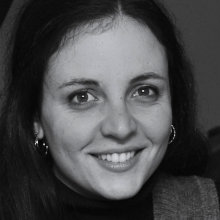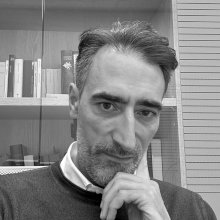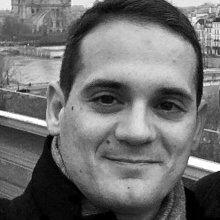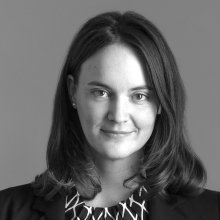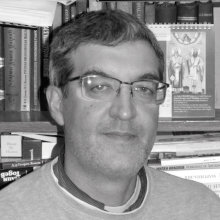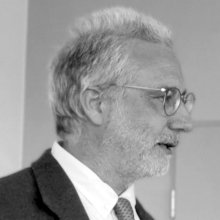International project RAP
Repertorium Auctorum Polemicorum
De pace et discordia inter Ecclesiam Graecam et Latinam
Institutions
Project
RAP is the first comprehensive inventory of writings dedicated to the relationship between Byzantine and Latin Christianity.
It encompasses all literary genres and topics related to the development of interactions between the western and eastern branches of the Church, now recognized as the Catholic and Orthodox Churches. The languages covered by RAP are Greek, Latin, and Old Slavonic.
RAP focuses on texts transmitted through the manuscript tradition, covering the period from Late Antiquity to the 16th century. This timeframe aligns with the Pinakes database, with which RAP collaborates.
RAP is an Italian-French project supported by the following institutions: Università Ca’ Foscari Venezia (Ca’ Foscari SPIN 2019 Measure 2, Venice Centre for Digital and Public Humanities (VeDPH), European Union - Next-GenerationEU - PNRR, Collège de France, Laboratoire Orient et Méditerranée (CNRS, UMR 8167), Labex RESMED, Université franco-italienne (UFI), and Ecole Pratique des Hautes Etudes (EPHE).
The project is developed in close collaboration with the IRHT Section grecque, which manages and implements the Pinakes database.
Project description
Database
The RAP database retrieves data on polemical literature, compiled by the RAP team, from the Pinakes database of Greek manuscripts, as well as from two new Latin and Slavic databases that are currently being populated.
Each controversial work of interest to RAP is studied and assigned a unique RAP identification number, ensuring precise identification without ambiguity (RAP identification numbers are prefixed with G for Greek texts, L for Latin texts, and S for Slavic texts). The Pinakes data on the author are verified and supplemented with details such as the work's title(s), incipit, desinit, and relevant bibliographic references.
Additionally, keywords are assigned to each work, including the subject of controversy, literary form, original terminology, and the type of the relationship between texts when two works are linked by mutual relationship.
Database description
Progress and development
The Repertorium Auctorum Polemicorum (ISSN 3035-2096) is a project in continuous development, with regular updates. Users are kindly reminded that the database is not yet complete. Each entry in RAP is curated by an expert, with the completion date and the most recent update clearly indicated for each record, ensuring transparency and accuracy of the data.
RAP began in 2020, and since then, the “RAP Graecum” has seen the addition of 170 entries (75 in 2020, 34 in 2021, 14 in 2022, 23 in 2023, and 24 in the first half of 2024). Since 2023, we have begun preparing entries for the “RAP Latinum” and “RAP Slavonicum”, which will be available online by the end of 2024.
Teams
Principal investigators
Short bio
Alessandra Bucossi has worked at Ca’ Foscari University of Venice since 2014, first as a researcher and then as an associate professor of Byzantine Studies. She studied at the Università degli Studi di Genova (Laurea 1999), King’s College London (Master of Arts 2001) and University of Oxford (D.Phil. 2006), she worked as research fellow at Dumbarton Oaks, Research Library and Collection – Trustee of Harvard University in Washington, D.C., Stockholms universitet and King’s College London. Her main research interests are the relationship between East and West in the medieval world and, particularly, the division between the Greek and the Latin Churches between the 9th and the 13th centuries.
Her major publications are the critical editions of Andronici Camateri Sacrum Armamentarium - Pars Prima, CCSG 75 (Turnhout, 2014) and of Nicetae Thessalonicensis Dialogi sex de processione Spiritus Sancti, CCSG 92, (Turnhout, 2021; in collaboration with Luigi D’Amelia). On the division between the Churches in 2020 she published the volume, edited with Anna Calia, Contra Latinos et Adversus Graecos: The Separation between Rome and Constantinople from the Ninth to the Fifteenth Century (Leuven, 2020) in the series Bibliothèque de Byzantion 22.
She has been principal investigator of the projects:
- The Eleventh and Twelfth Centuries as Forerunners of a United and Divided Europe: Dialogues and Disputes between the Byzantine East and the Latin West (MIUR/FIR 2013/RBFR13YQVA)
- Repertorium Auctorum Polemicorum – RAP (UNIVE/SU.BUCOSSI.SPIN2019)
- Panoplia Panopliarum - The long twelfth century: the Byzantine age of anti-heretical compilations (PRIN PNRR P2022FCX7J – CUP H53D23009250001)
Short bio
Ph.D. (2005), Marie-Hélène Blanchet is a research director at the Centre National de la Recherche Scientifique (CNRS), Paris, UMR 8167 Orient et Méditerranée. She is a specialist in late Byzantine history, particularly in intellectual and religious history of the Palaiologan period (13th-15th centuries), including the question of the Union of the Churches.
Her major publications are Georges-Gennadios Scholarios (vers 1400–vers 1472). Un intellectuel orthodoxe face à la disparition de l’Empire byzantin (Paris, 2008), and Théodore Agallianos, Dialogue avec un moine contre les Latins (1442). Édition critique, traduction française et commentaire (Paris, 2013). She is now preparing the publication of her “habilitation”, Les deux traductions grecques du De rationibus fidei de Thomas d’Aquin (xive siècle). Éditions critiques et commentaire, within the project Thomas de Aquino Byzantinus.
Team Graecum
Short bio
Luigi D’Amelia is research fellow at Ca’ Foscari University of Venice. After his MA in Classics and PhD in “History of Christianity and of the Churches” (Università di Roma “Tor Vergata”, 2013), in 2014-2015 he was awarded a research scholarship at the Institut für Byzantinistik und Neogräzistik of the Westfälische Wilhelms-Universität Münster, and later worked, among other assignments, as a research fellow at the Centre for Humanities and Social Change in Venice.
His main research strands include Byzantine hymnography and hagiography of the middle-Byzantine period as well as Byzantine polemical literature of the Komnenian age. Among his major publications are "Giuseppe l’Innografo. Nuovo Ottoeco: gli otto canoni per i ss. apostoli, introduzione, testo critico, traduzione e commento" (Roma, 2018) and Nicetae Thessalonicensis Dialogi sex de processione Spiritus Sancti (Turnhout, 2021; in collaboration with Alessandra Bucossi).
Short bio
In June 2023, Francesca Samorì obtained her PhD in Byzantine Studies from the University of Padua (Italy) and the École Pratique des Hautes Études in Paris; her dissertation consisted in the first critical edition of the first book of the “Dogmatic History” by George Metochites, with an Italian translation and a commentary. She now holds a post-doctoral position in Padua, with a research project dedicated to a first survey on John Bekkos’ writings and their manuscript tradition. She collaborates with the RAP project within the framework of an Italy-France mobility funding from the Université Franco-Italienne (UFI/UIF).
On the subject of her PhD dissertation, she has published two main articles: “I codici autografi del diacono Giorgio Metochites e la tradizione manoscritta delle sue opere”, in “Revue des Études Byzantines 80” (2022) and “A Self-Portrait of an Unyielding Unionist. The «Historia dogmatica» of George Metochites and the Fight for Church Unity”, in “Parekbolai Electronic Journal 12” (2022).
Short bio
Luigi Silvano holds a degree in Classics (1999) and a PhD in Greek, Latin and Byzantine Literature and Philology (2005) both awarded by the University of Torino. He has been visiting scholar and research fellow in universities and research institutes in Italy and abroad (Aarhus Universitet, 2005-6; KU Leuven, 2009; OAW, Institut für Byzanzforschung, Vienna, 2011; Villa I Tatti, Harvard/Firenze, 2011-12; FU Berlin, 2015; Ludwig Boltzmann Institut für Neulateinische Studien, Innsbruck, 2016-7; Institut für Griechische und Lateinische Philologie, Universität Hamburg, 2019); moreover, he is Membre associé of the Équipe d’accueil SAPRAT, EPHE, Paris. He has been Assistant Professor in Byzantine Studies at the University of Rome La Sapienza (2011-2015), then at the University of Torino, where since 2019 he is Professor of Classical Philology. His research interests include the cultural relationships between East and West in the Middle Ages and the Renaissance; the reception of the Classics in Byzantium and in 15th-16th c. Europe; Byzantine literature (the apocalyptic tradition; visions of the other world; polemical-dogmatic literature; the reception of Homer; the miracles of St. Menas etc.).
Among his publications: Angelo Poliziano, “Appunti per un corso sull’Odissea. Editio princeps dal Par. gr. 3069”, ed. Luigi Silvano (Alessandria 2010, 2nd ed. 2019); “Classici veri e falsi alla scuola degli umanisti” (Alessandria 2019); and the edited volumes “Teachers, Students, and Schools of Greek in the Renaissance”, with F. Ciccolella (Leiden – Boston 2017); and “Latin in Byzantium I. Late Antiquity and Beyond” (Turnhout 2019), with A. Garcea and M. Rosellini.
Team Latinum
Short bio
Nikolaos G. Chrissis (PhD Royal Holloway, University of London, 2008) is Assistant Professor of Medieval European History at the National and Kapodistrian University of Athens. He has also taught at the universities of London, Birmingham, Crete, the Democritus University of Thrace, and the Hellenic Open University. He is currently Secretary of the “Society for the Study of the Crusades and the Latin East” (SSCLE) and Associate Editor of the journal “Crusades” (Routledge).
His main research interests and publications revolve around the history of the Crusades, Latin presence in Greek lands, Byzantine-Western relations, papal policy in the Levant (11th-15th c.), and generally intercultural contacts and identity formation in the medieval Mediterranean.
He is the author of “Crusading in Frankish Greece: A Study of Byzantine-Western Relations and Attitudes, 1204-1282" (Turnhout, 2012), as well as co-editor of “Contact and Conflict in Frankish Greece and the Aegean, 1204-1453” (Farnham, 2014), “Byzantium and the West: Perception and Reality, 11th-15th c.” (Routledge, 2019), and “Crusading against Christians in the Middle Ages” (Palgrave Macmillan, forthcoming). He has also been invited to contribute chapters to collective volumes such as: “The Brill Companion to Latin Greece”, “The Cambridge History of the Crusades”, “The New Oxford Illustrated History of the Crusades”, and “The Cambridge Companion to Christian Heresy”.
Short bio
Pietro Podolak is research fellow at Ca’ Foscari University of Venice. He studied Classics (University of Pisa). After his PhD (University of Pisa, 2006) he was research fellow at the Società Internazionale per lo Studio del Medioevo Latino (SISMEL, Florence), at the University of Würzburg (as Humboldtstipendiat, 2008-2010) and at the University of Warwick.
His research activity focuses on textual criticism of late ancient and medieval texts, especially in Latin, and on interaction between Greek and Western culture. Among his major publications are: P. Podolak – A. Zago (edd.), Hugonis Eteriani “Epistolae”, “De sancto et immortali Deo”, “Compendiosa Expositio”, Fragmenta Graeca quae extant, Turnhout, Brepols, CCCM 298, 2020; P. Podolak (ed.), Dionysii Areopagitae “De mystica theologia – De divinis nominibus” interprete Marsilio Ficino, Napoli, D'Auria 2011.
Short bio
Andrea Riedl has been working at the Technical University of Dresden since 2020, where she teaches and conducts research in the field of church history. She studied Catholic theology and Classics in Graz and Thessaloniki, completed her doctorate in theology (Church history) at the University of Vienna (2016) and her habilitation in Church history and Patrology at the University of Salzburg (2021). From 2017-2020, she was an Erwin Schrödinger Postdoctoral Fellow of the Austrian Science Fund at the Medieval Institute of the University of Notre Dame/IN (2017/18), at the “Monumenta Germaniae Historica” in Munich (2018/19) and at the University of Vienna (2019/20). 2021/22 she held a deputy chair for Ancient Church History and Patrology at the University of Regensburg. She is a board member of the Austrian PRO ORIENTE Foundation, a member of the St. Irenaeus Joint Orthodox-Catholic Working Group and advisor to the Ecumenical Commission of the German Bishops' Conference.
Her main research interest lies in the relations between East and West in the Middle Ages, with a particular focus on the history of theology with regard to the division between Rome and Constantinople. Her major publications are the critical edition of the anonymous Dominican “Tractatus contra Graecos” (1252) in CCCM 303 (Turnhout, 2020) with a German translation in FC 100 (Freiburg/Br., 2024) and a study on polemical theology during the Latin Empire of Constantinople in VGI 69 (Berlin, 2020).
Short bio
Ph.D. (Iowa, 1994), Chris Schabel taught at the University of Cyprus from 1995 until his retirement in 2022 and at present he participates in the ERC-project DEBATE at the CNRS/IRHT, Aubervilliers. His research focuses on later medieval intellectual history and the Latin East.
His main publications pertinent to the RAP project are, with C. Philipp E. Nothaft, “The Cistercian Hermann Zoest’s Treatise on Leavened and Unleavened Bread (RTPM – Bibliotheca, 21)”, Leuven 2022; with Martin Hinterberger (ed.), “Greeks, Latins, and Intellectual History 1204-1500 (RTPM – Bibliotheca, 11)”, Leuven 2011; and “Greeks, Latins, and the Church in Early Frankish Cyprus (Variorum, 949)”, Farnham 2010. With Claudine Delacroix-Besnier he is currently editing the polemical works of the Dominican Philippus de Pera for “CCCM”, and he is also preparing editions of other late medieval Latin treatises “Contra Graecos”.
Team Slavonicum
Short bio
Angel Nikolov (1971, Sofia) is Associate Professor in Medieval Bulgarian History at the Faculty of History, Sofia University St. Kliment Ohridski, since 2011. His research interests include the fields of medieval Bulgarian history, Bulgarian-Byzantine political and cultural relations, medieval religious controversy between the Eastern Orthodox and Catholic Church, medieval political thought, religious and artistic contacts between Muscovy, Mount Athos and Bulgarian lands during 16th – 17th century, Russian traveller and scientific accounts about the cultural heritage of Bulgaria in the 19th – early 20th century.
Besides his official university studies, he has received extra specialization through research and work in Oxford, Saarbrücken, Cracow, Bucharest, Belgrade. He is member of the Association of the Byzantinists and Medievalists in Bulgaria and of the International Advisory Board of the Waldemar Ceran Research Centre for the History and Culture of the Mediterranean Area and South-East Europe at the Institute of History of the University of Lodz (Poland). He is on the editorial board of “Slovĕne. International Journal of Slavic Studies” (Moscow).
Short bio
Marco Scarpa has been an associate professor of Slavic Studies at the University of Messina since 2022. He trained at the University of Venice (BA 2006, MA 2008, PHD 2012). He has taught courses at the Universities of Venice, Messina, Macerata and Florence. He worked as an associate professor at the Center for Cyril-Methodian Studies of the Bulgarian Academy of Sciences in Sofia (Bulgaria) from 2018 to 2022.
His main research interests concern South Slavic manuscript production, in particular with regard to copyists, monastic literature and anti-Latin literature in Slavic translation, as well as the use of information technologies for the various fields of Slavic Philology.
He is the scientific coordinator of the projects: - “The Monastery Libraries in the South Slavic Lands and Russia in the 14th-16th c.” (2019-2022, bilateral projects Bulgaria Russia financed by the “Scientific Research Fund” of the Ministry of Education and Scientific Research of the Republic of Bulgaria) and - “Fourteenth Century South Slavonic scribes and scriptoria (palaeographical attribution and online repertorium)” (2020-ongoing, Basic research projects financed by the “Scientific Research Fund” of the Ministry for Education and Scientific Research of the Republic of Bulgaria).




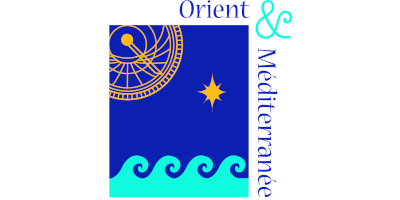

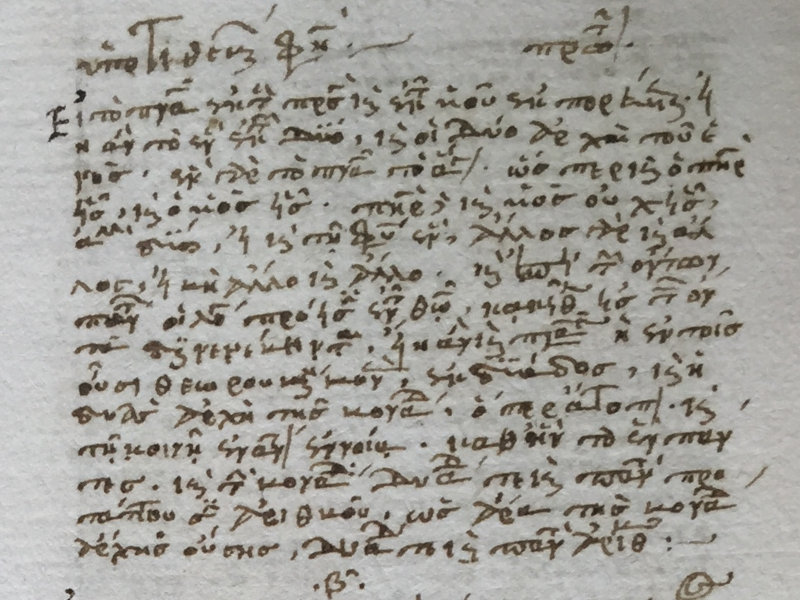
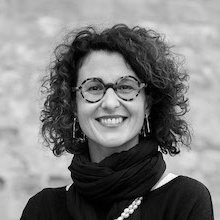
![Marie-Hélène Blanchet [FRA] Marie-Hélène Blanchet [FRA]](/fileadmin/user_upload/RAP/img/220x220/MHB.jpg)

